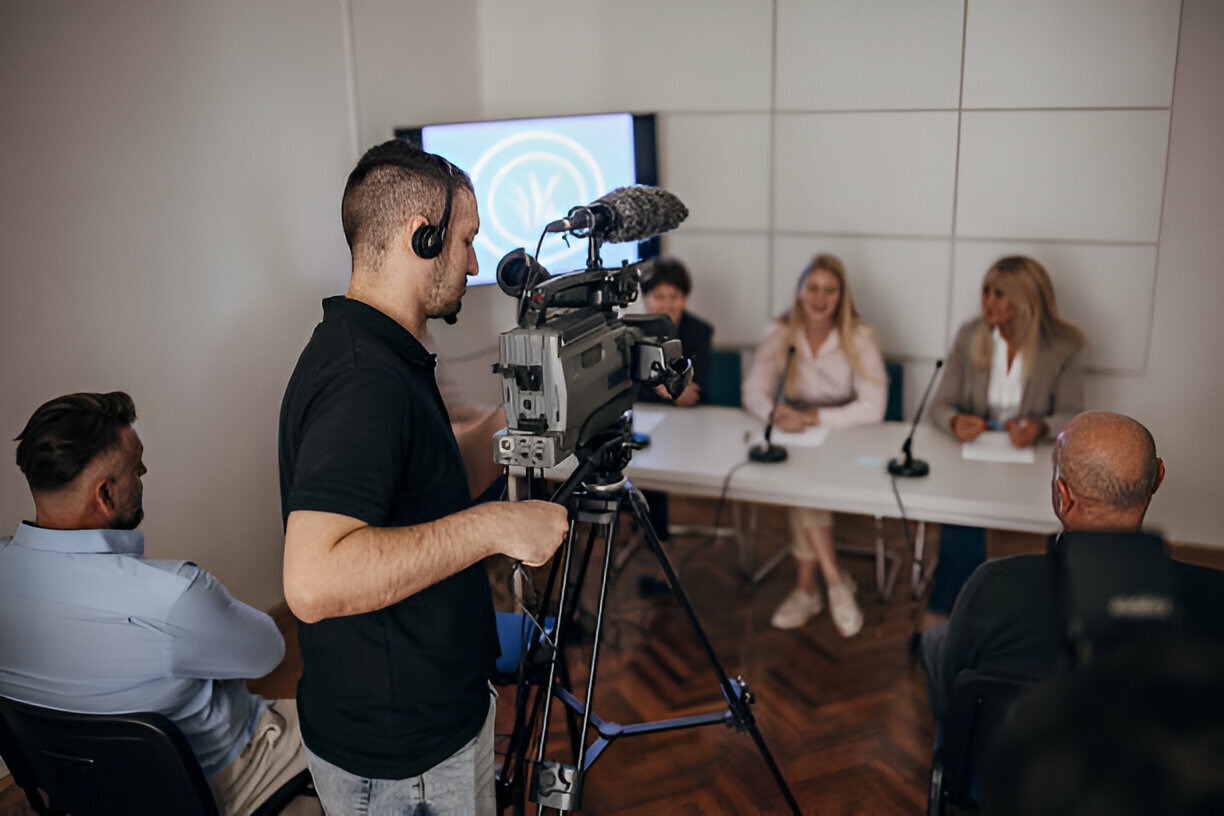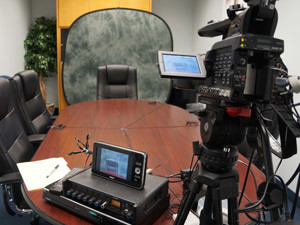Checking Out the Different Kinds Of Legal Videographers and Their Distinct Offerings
Legal videographers play a vital role in the judicial procedure, each focusing on unique facets of court documents. Their knowledge ranges from recording witness testimonies to boosting test presentations. Recognizing the varied offerings of these professionals can illuminate their contributions to legal procedures. As the intricacies of modern litigation grow, the value of their functions comes to be progressively obvious. What particular features do these videographers serve, and just how do they influence the results of situations?
Understanding Legal Videography
Legal videography plays a necessary role in the judicial procedure, providing aesthetic documents that can boost the quality and accuracy of legal process. This specialized field entails catching video recordings of numerous legal occasions, such as trials, hearings, and other significant minutes within the legal system. Legal videographers use innovative equipment and methods to assure premium video, which can serve as critical evidence during litigation.Understanding legal videography calls for recognizing its relevance in conveying information in an aesthetic style. The tape-recorded video can assist juries and judges much better understand the context and subtleties of testimonies and occasions, possibly affecting judgments. In addition, legal videographers need to stick to strict guidelines and requirements to preserve the honesty of the recordings. Their work not only aids in maintaining an in-depth account of proceedings yet also adds to the general transparency and accountability within the legal structure, making certain that justice is served successfully.
Deposition Videographers
Deposition videographers play a vital duty in legal process by taping witness testimonies for future referral. They make use of specialized tools and techniques to ensure top quality video clip paperwork that properly catches the nuances of each deposition. Recognizing their approaches and the value of their job can enhance the effectiveness of legal presentations.
Role in Legal Procedures
While usually overlooked, the function of videographers in legal process is crucial, especially during depositions. These professionals document witness statements, recording both spoken and non-verbal cues that can be essential in court. Their recordings function as an accurate depiction of the deposition, giving a reputable reference for lawyers and courts. Videographers ensure that the setting is professional, minimizing disturbances and sticking to legal standards. They are educated to handle different circumstances, consisting of unforeseen disturbances or technical difficulties, protecting the honesty of the recorded material. In addition, the presence of a videographer can discourage evasive behavior from witnesses, advertising even more candid reactions. Overall, their contributions considerably enhance the clarity and efficiency of legal process.
Tools and Methods Used
The tools and strategies utilized by deposition videographers are important for creating high-quality recordings that precisely catch witness statements. Professional-grade cams, commonly with 4K resolution, guarantee clear visuals, while high-fidelity microphones catch audio without distortion. Videographers typically use tripods for stability and illumination equipment to boost presence, particularly in less-than-ideal settings. Methods such as framing the witness properly and keeping ideal angles are important for communicating body language and expressions. Several deposition videographers likewise utilize electronic editing software to boost the end product, assuring clearness and coherence. In addition, they may incorporate time-stamping and comments during post-production to facilitate referral during legal procedures, inevitably giving a comprehensive and dependable document of the deposition.
Test Presentation Videographers
Test discussion videographers play an important duty in courtroom setups by properly picturing proof and improving the narration process. Making use of sophisticated technology and specific devices, they produce compelling discussions that help juries and courts realize intricate details. Their proficiency in reliable storytelling techniques even more elevates the impact of legal disagreements during tests.
Function in Courtroom Setups
Regularly, legal videographers play a crucial role in court room settings by capturing and offering aesthetic evidence that improves the clearness of legal arguments. These professionals concentrate on documenting witness testimonies, depositions, and crucial evidence, making certain that the process are properly taped for future reference. Their job not only help in the instant discussion of situations but likewise functions as a useful resource throughout appeals or testimonials. Trial discussion videographers carefully assemble and edit footage to develop compelling aesthetic stories that attorneys can make use of to persuade discretionary. By incorporating aesthetic aspects into the trial, they substantially add to the total effectiveness of the legal process, facilitating a more educated decision-making setting within the courtroom.
Modern Technology and Equipment Utilized
Modern test discussion videographers rely on sophisticated modern technology and customized devices to efficiently catch and existing proof in the courtroom. High-definition cams are often used to ensure that every detail is tape-recorded with quality, while several electronic camera angles can boost the aesthetic narrative. Videographers frequently use cordless microphones to capture clear audio from witnesses and lawyers, lessening diversions. Furthermore, innovative software program devices enable real-time editing and enhancing and smooth integration of video, images, and shows throughout discussions. Projectors and huge screens are commonly utilized to show content in an engaging way, seeing to look at these guys it that jurors and courts can conveniently adhere to the process. This mix of modern technology and tools is critical for developing impactful court presentations that help with understanding and retention of details.
Reliable Narration Methods
Catching high-quality video and sound is just the starting for test discussion videographers; efficient storytelling methods play a crucial role in conveying complex legal narratives. These experts employ numerous approaches to boost the clarity and influence of the product provided. By very carefully structuring the visual and audio elements, they create a systematic circulation that guides jurors through the truths of the case. Using strategies such as thematic framework, emotional allure, and logical development, they highlight key factors and bolster the total argument. Furthermore, integrating visuals, such as layouts or animations, can streamline intricate ideas and maintain the audience involved. Ultimately, test presentation videographers transform raw video right into compelling stories that resonate with jurors, promoting informed decision-making in the court.
Video Clip Evidence Experts
Video clip evidence specialists play a vital function in the legal process, making sure that visual recordings are properly captured, maintained, and presented in court. These experts are trained to take care of a selection of videotaping devices and strategies customized specifically for legal settings. They concentrate on acquiring top quality recordings that can withstand scrutiny, adhering to stringent procedures to keep the honesty of the evidence.Often involved in the documentation of criminal activity scenes, depositions, and witness declarations, video evidence specialists are proficient in developing footage that is both clear and reputable. They are likewise experienced concerning legal criteria and needs, making certain that their job adheres to administrative laws. Additionally, these specialists might aid in the post-production procedure, editing and enhancing and format video clips for ideal presentation. Their experience help lawyers in successfully sharing their cases, making the duty of video evidence specialists essential in the search of justice.
Court room Videographers
While the court often functions as the phase for critical legal proceedings, court room videographers ensure that these moments are documented with accuracy and clearness. Their main role is to capture all facets of a test, including witness testimonies, opening up and shutting declarations, and court responses. Utilizing customized tools, courtroom videographers assure that audio and video clip top quality satisfy the standards needed for legal documentation.These experts are adept at the office unobtrusively within the courtroom setting, steering with the essential methods and keeping the stability of the legal process. They typically work together closely with attorneys to comprehend specific requirements, making sure that important components are tape-recorded for future reference.Furthermore, court room videographers play an essential role in maintaining the authenticity of the proceedings, giving an invaluable source for appeals or additional lawsuits. Their expertise warranties that all recorded material functions as a reputable account of the court room events for all events involved.

Post-Production Services and Modifying

After the court proceedings are tape-recorded, the emphasis moves to post-production services and editing, which play a significant role in fine-tuning the caught product. Legal videographers make use of specialized software program to boost video quality, guaranteeing quality and professionalism. This stage typically includes shade modification, audio enhancement, and the removal of any nonessential footage, producing a coherent story that aligns with legal standards.Additionally, videographers might integrate graphics, annotations, or subtitles to offer context or highlight crucial details. The modifying procedure additionally includes arranging the video chronologically or thematically, making it much easier for legal teams to reference particular sectors during trials or depositions. Additionally, legal videographers usually prepare last edits in different formats to fit different systems and uses, ensuring access for all stakeholders included. Inevitably, effective post-production solutions are vital for producing high-grade legal videos that sustain the case at hand.
Often Asked Inquiries
What Qualifications Should I Look for in a Legal Videographer?

How Do Legal Videographers Ensure Video High Quality and Integrity?
Legal videographers guarantee video top quality and great post to read reliability with high-def devices, mindful lights, and sound management - legal videographers. They also follow legal criteria, use backup systems, and carry out detailed pre-production preparation to decrease potential problems during recordings
What Devices Do Legal Videographers Usually Utilize?
Legal videographers generally make use of high-def electronic cameras, tripods for stability, outside microphones for clear audio, and lighting tools to boost presence. find here They may likewise utilize modifying software application to ensure polished and professional final items for legal process.
How much time Does the Editing And Enhancing Refine Typically Take?
The editing and enhancing procedure for legal videographers usually varies, ranging from a couple of hours to several days. Factors such as video clip complexity, required quality, and particular customer demands substantially affect the overall time dedication required for completion.
Are Legal Videographers Knowledgeable About Courtroom Decorum?
Legal videographers usually possess a strong understanding of courtroom decorum - legal videographers. Their training typically includes expertise of etiquette, devices placement, and respect for legal procedures, ensuring their job straightens with the formal ambience of the court